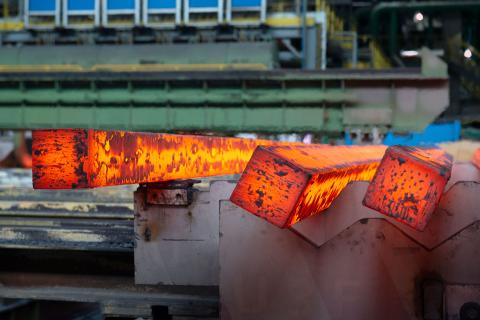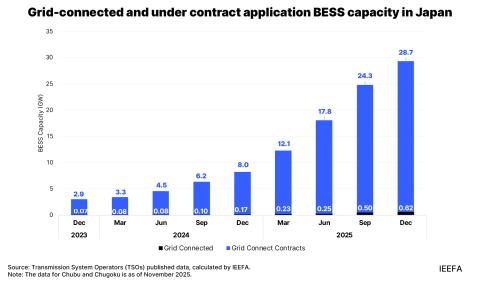
Key Findings
South Korea, the largest exporter in the global jet fuel market, implemented a sustainable aviation fuel (SAF) mandate in August 2024. The mandate requires a 1% SAF blend for international flights by 2027 to drive aviation decarbonization, which accounts for 2-3% of global greenhouse gas (GHG) emissions.
The International Air Transport Association (IATA) projects that 449 billion liters of SAF will be needed by 2050 to achieve net-zero emissions in the aviation sector. The market value is expected to be around US$45 billion in 2030, prompting many countries to adopt SAF mandates.
South Korea, with its advanced recycling system, including an 86% waste recycling rate and ranking second in the Organization for Economic Cooperation and Development (OECD) for municipal waste recycling, has significant potential to lead SAF production and its supply chain.
While SAF offers a promising path toward decarbonization with economic benefits, a cautious approach is needed to address various challenges associated with using unsustainable feedstocks and production technologies. There are related sustainability concerns, including deforestation, biodiversity loss, water scarcity, competition with food uses, and land-use emissions that may exceed the impacts of fossil fuels.
Executive Summary
The aviation industry is one of the hard-to-abate sectors for addressing climate change, accounting for around 2-3% of global greenhouse gas (GHG) emissions. Passenger numbers are projected to reach 10 billion globally by 2050. Carbon emissions from 2021 to 2050 on a business-as-usual scenario will likely reach 21.2 gigatonnes of carbon dioxide (CO2), marking around 13% compound annual growth rate (CAGR).
Given its rapid expansion in market size and increase in carbon emissions, the air transport sector should have a decarbonization pathway. However, due to the complexity of international aviation involving multiple countries, companies, and stakeholders, this industry has been excluded from the Paris Agreement and decarbonization has lagged. Accordingly, the aviation industry is looking for ways to reduce GHG emissions in the shorter term while developing more sustainable long-term solutions. Sustainable aviation fuel (SAF) could decrease emissions from air travel.
SAF is an innovative solution for decarbonizing the aviation sector by utilizing alternative feedstocks such as waste fats, oils, and grease (FOG), municipal solid waste (MSW), food waste, algae, and photosynthetic organisms. It can reduce CO2 emissions by up to 80% compared to traditional jet fuel. SAF offers a drop-in solution for decarbonizing aviation, requiring minimal aircraft or infrastructure modifications, with current blends allowing up to 50% SAF and fossil jet fuel. The aviation industry aims for full SAF compatibility (100% blend) by 2030.
Despite its environmental benefits, SAF faces challenges, including limited feedstock availability, high production costs (two to five times higher than fossil jet fuel), and technological limitations. The dominant production process, hydroprocessed esters and fatty acids (HEFA), relies on feedstocks like used cooking oil and animal fats, which are in short supply.
This feedstock scarcity and unaffordability risks a shift towards first-generation feedstocks (such as soybean and palm oil), which are cheaper and more readily available but are associated with sustainability concerns, including deforestation, biodiversity loss, water scarcity, competition with food uses, and land-use emissions that may exceed fossil fuel impacts. Additionally, not all SAFs achieve the same degree of carbon reduction. Some production methods have higher carbon footprints than others.
Despite its challenges, limitations, and the absence of viable near-term technological alternatives, many countries and global aviation leaders are eager to spearhead advancements in the SAF industry. The International Air Transport Association (IATA) estimated that 449 billion liters of SAF will be required by 2050 to achieve net-zero emissions, representing a CAGR of 17.5% compared to the 2025 level.
The SAF market value is projected to surge from US$0.6 billion in 2022 to around US$45 billion in 2030, a nearly 75-fold increase. With global carbon regulations in aviation tightening and major countries rolling out SAF mandates, demand could continue its upward trajectory.
Motivated to safeguard its leading position in the jet fuel industry and accelerate decarbonization in aviation, South Korea implemented a SAF mandate in August 2024. The mandate requires all departing international flights from the country to use at least 1% SAF starting in 2027.
South Korea was the largest jet fuel exporter in the world, selling around 92 million barrels in 2023, accounting for about 4% of the global jet fuel trade. The country’s petroleum products, including jet fuel, comprise around 9% of total South Korean annual exports, ranking third behind semiconductors and automobiles.
The aviation industry recorded exceedingly high carbon intensity, with Korean Air, the country’s flagship carrier, ranked among the top large-cap companies in South Korea with the highest carbon intensity. Without some action, the country will remain a significant source of aviation sector emissions worldwide. Consequently, South Korean jet fuel refiners could adopt SAF to reduce emissions.
South Korea, with its advanced recycling system, including an 86% waste recycling rate and ranking second in the Organization for Economic Cooperation and Development (OECD) for municipal waste recycling, has significant potential to lead SAF production and its supply chain. The timely development of a domestic SAF industry, while addressing challenges and risks, is crucial for leveraging opportunities and achieving a greener aviation future.















